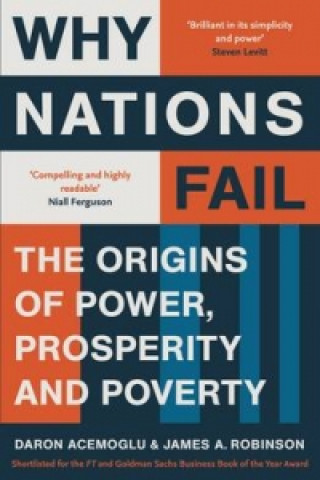
Kód: 01242366
Why Nations Fail
Autor Daron Acemoglu, James A. Robinson
Brilliant and engagingly written, Why Nations Fail answers the question that has stumped the experts for centuries: Why are some nations rich and others poor, divided by wealth and poverty, health and sickness, food and famine? I ... celý popis
- Jazyk:
 Angličtina
Angličtina - Väzba: Brožovaná
- Počet strán: 544
Nakladateľ: Profile Books, 2013
- Viac informácií o knihe

Mohlo by sa vám tiež páčiť
-
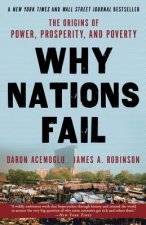
Why Nations Fail
16.22 € -7 % -
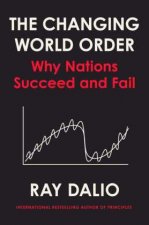
Principles for Dealing with the Changing World Order
23.43 € -7 % -

Surrounded by Idiots
10.01 € -15 % -
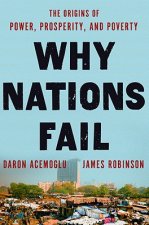
Why Nations Fail
31.74 € -5 % -

Poor Economics
11.41 € -19 % -

Power and Progress
20.82 € -14 % -

World Order
12.01 € -23 % -

Zero to One
12.91 € -18 % -

Rational Optimist
13.71 € -12 % -

The Dawn of Everything
15.82 € -4 % -

Prisoners of Geography
11.21 € -21 % -
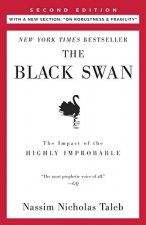
The Black Swan
20.22 € -3 % -

Start-Up Nation
10.41 € -11 % -

Intelligent Investor
18.72 € -5 % -

The Concise 48 Laws of Power
9.91 € -16 % -

Why Men Love Bitches
14.81 € -12 % -

Normal People
9.40 € -20 % -
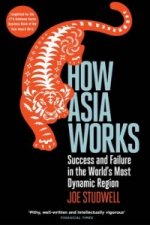
How Asia Works
12.01 € -23 % -

History of Central Banking and the Enslavement of Mankind
26.73 € -

Wealth of Nations
5.90 € -19 % -

How to Invest
16.02 € -19 % -

Seven Husbands of Evelyn Hugo
11.11 € -

How the World Really Works
11.71 € -20 % -

Sell It Like Serhant
12.01 € -23 % -

Monk Who Sold his Ferrari
8.30 € -11 % -

Optimism Over Despair
8 € -13 % -

Diplomacy
17.52 € -19 % -

12 Rules for Life
10.21 € -13 % -

Getting Things Done
14.11 € -23 % -

The Fourth Turning
19.52 € -6 % -

Vogue Knitting The Ultimate Stitch Dictionary
37.35 € -23 % -

Psychology of Money
18.82 € -10 % -

Fear and Loathing in La Liga
14.11 € -23 % -

Uneasy Partnerships
37.15 € -

Fifty Things that Made the Modern Economy
11.81 € -17 % -
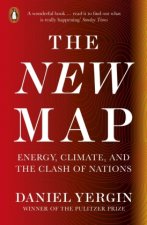
New Map
19.02 € -2 % -

Future of Intelligence
27.03 € -

Science of Cooking
22.23 € -19 % -

Japanese Knitting Stitch Bible
18.02 € -
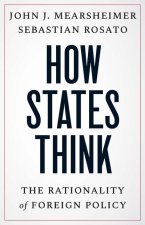
How States Think – The Rationality of Foreign Policy
26.13 € -14 % -

The Denial of Death
13.61 € -12 % -

Titan
23.93 € -10 % -

Operation Paperclip : The Secret Intelligence Program that Brought Nazi Scientists to America
21.92 € -7 % -
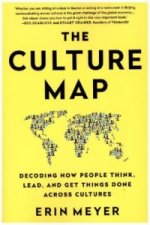
The Culture Map
19.12 € -19 % -

Generations
19.72 € -21 % -

The Crime Book
20.72 € -

IELTS 15 Academic Student's Book with Answers with Audio with Resource Bank
45.06 € -

Life Force
18.52 € -15 % -

Narrow Corridor
13.31 € -19 % -

Reducing Uncertainty
27.23 € -

The 48 Laws of Power
24.23 € -9 % -

The Art of War
3.40 € -

YEAR OF WONDER: Classical Music for Every Day
17.52 € -19 % -

Burn After Writing
10.81 € -21 % -

Principles
26.33 € -20 % -

Letters to a Young Poet
2.59 € -26 % -

Why I Am so Clever
4.10 € -11 % -

Managing The Professional Service Firm
18.52 € -5 % -

The Manager's Path
34.14 € -15 % -

The Coaching Habit
17.32 € -2 % -

Professional Product Owner, The
32.84 € -2 % -

Presentation Secrets of Steve Jobs: How to Be Insanely Great in Front of Any Audience
15.11 € -23 % -

Communication Book
11.41 € -19 % -

48 Laws Of Power
17.62 € -10 % -

The Art Of Seduction
22.53 € -7 % -

Finding Me
13.11 € -26 % -

Storm Whale
11.01 € -4 % -

Four Elements
10.91 € -23 % -

Wanted Man
8.80 € -23 % -

Complete First Workbook without Answers with Audio CD
12.71 € -3 % -

Office One Quote A Day
10.51 € -

Oil Painting Essentials
22.63 € -14 % -

The Infernal Devices, the Complete Collection
33.64 € -20 % -

So Good They Can't Ignore You
16.22 € -23 % -

Romeo and Juliet
3.30 € -3 % -

Kapital
56.48 € -

Das Kapital
8.40 € -

Věž úsvitu
12.81 € -18 % -

Cristiano Ronaldo Kanonýr historie
12.01 € -23 % -

Lenin a 21. storočie
15.72 € -22 % -

Kodeks postępowania cywilnego. Postępowanie zabezpieczające
36.45 € -

Powrocmy do rozmowy
4.70 € -22 % -

Dráček Drápek a Cesta do Lávové hory
7.90 € -19 % -

Kainove deti
6.40 € -28 % -

Znamení a symboly katolické víry
4.80 € -12 % -

Don Quijote de la Mancha
5.50 € -4 % -

Stálo to za to
10.41 € -12 % -

TOPP Barevné košíčky z papíru
1.99 € -49 % -

Psaní na dotek
13.91 € -21 % -

Mária Magdaléna Nevesta v exile
11.51 € -19 % -

Mein Kampf
24.23 € -8 % -

Slovník biblické ikonografie
15.01 € -

O nebeském a lidském
14.51 € -

Atypické parkinsonské syndromy
15.82 € -18 % -

Cestou necestou za tajemstvím Hrubého Jeseníku
10.51 € -11 % -

Pivo, zbraně i tvarůžky
12.21 € -22 % -

Elektrokola
10.11 € -14 % -

Deň, keď som vyrástla
5.90 € -18 %
Darčekový poukaz: Radosť zaručená
- Darujte poukaz v ľubovoľnej hodnote, a my sa postaráme o zvyšok.
- Poukaz sa vzťahuje na všetky produkty v našej ponuke.
- Elektronický poukaz si vytlačíte z e-mailu a môžete ho ihneď darovať.
- Platnosť poukazu je 12 mesiacov od dátumu vystavenia.
Viac informácií o knihe Why Nations Fail
Nákupom získate 33 bodov
 Anotácia knihy
Anotácia knihy
Brilliant and engagingly written, Why Nations Fail answers the question that has stumped the experts for centuries: Why are some nations rich and others poor, divided by wealth and poverty, health and sickness, food and famine?
Is it culture, the weather, geography? Perhaps ignorance of what the right policies are?
Simply, no. None of these factors is either definitive or destiny. Otherwise, how to explain why Botswana has become one of the fastest growing countries in the world, while other African nations, such as Zimbabwe, the Congo, and Sierra Leone, are mired in poverty and violence?
Daron Acemoglu and James Robinson conclusively show that it is man-made political and economic institutions that underlie economic success (or lack of it). Korea, to take just one of their fascinating examples, is a remarkably homogeneous nation, yet the people of North Korea are among the poorest on earth while their brothers and sisters in South Korea are among the richest. The south forged a society that created incentives, rewarded innovation, and allowed everyone to participate in economic opportunities.
The economic success thus spurred was sustained because the government became accountable and responsive to citizens and the great mass of people. Sadly, the people of the north have endured decades of famine, political repression, and very different economic institutions—with no end in sight. The differences between the Koreas is due to the politics that created these completely different institutional trajectories.
Based on fifteen years of original research Acemoglu and Robinson marshall extraordinary historical evidence from the Roman Empire, the Mayan city-states, medieval Venice, the Soviet Union, Latin America, England, Europe, the United States, and Africa to build a new theory of political economy with great relevance for the big questions of today, including:
- China has built an authoritarian growth machine. Will it continue to grow at such high speed and overwhelm the West?
- Are America’s best days behind it? Are we moving from a virtuous circle in which efforts by elites to aggrandize power are resisted to a vicious one that enriches and empowers a small minority?
- What is the most effective way to help move billions of people from the rut of poverty to prosperity? More philanthropy from the wealthy nations of the West? Or learning the hard-won lessons of Acemoglu and Robinson’s breakthrough ideas on the interplay between inclusive political and economic institutions?
Why Nations Fail will change the way you look at—and understand—the world.
 Parametre knihy
Parametre knihy
Zaradenie knihy Knihy po anglicky Economics, finance, business & management Economics
13.01 €
- Celý názov: Why Nations Fail
- Podnázov: The Origins of Power, Prosperity and Poverty
- Autor: Daron Acemoglu, James A. Robinson
- Jazyk:
 Angličtina
Angličtina - Väzba: Brožovaná
- Počet strán: 544
- EAN: 9781846684302
- ISBN: 1846684307
- ID: 01242366
- Nakladateľ: Profile Books
- Hmotnosť: 458 g
- Rozmery: 195 × 128 × 34 mm
- Dátum vydania: 07. February 2013
Obľúbené z iného súdka
-

Team Topologies
24.03 € -14 % -

Freakonomics
9.40 € -4 % -

Misbehaving - The Making of Behavioral Economics
10.61 € -10 % -

Indispensable Milton Friedman
28.94 € -6 % -

Little Book of Economics
10.91 € -23 % -

Pyramid Principle, The
47.36 € -

Essential Mathematics for Economic Analysis
72.81 € -7 % -
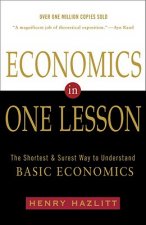
Economics In One Lesson
16.22 € -23 % -

Predictably Irrational
17.62 € -15 % -

Price of Inequality
10.61 € -10 % -

(Mis)Behaviour of Markets
14.11 € -23 % -

Debt, 10th Anniversary Edition
27.83 € -23 % -

A-Level Economics: Year 1 & 2 Complete Revision & Practice (with Online Edition)
27.63 € -10 % -

The Invisible Hand
7.70 € -23 % -

Liar's Poker
13.71 € -

Irrational Exuberance
20.42 € -14 % -

Art of Statistics
11.41 € -19 % -

Scrum - A Pocket Guide - 3rd edition
22.23 € -5 % -

Hypomanic Edge
21.02 € -11 % -

How I Made One Million Dollars Last Year Trading Commodities
42.46 € -14 % -

Misbehavior of Markets
24.93 € -

Econometric Analysis, Global Edition
87.73 € -

Cartoon Introduction to Economics
20.72 € -

Economics: The User's Guide
13.31 € -19 % -
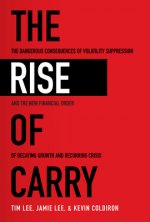
Rise of Carry: The Dangerous Consequences of Volatility Suppression and the New Financial Order of Decaying Growth and Recurring Crisis
26.83 € -23 % -

Myth of Capitalism - Monopolies and the Death of Competition
24.33 € -20 % -

How Rich Countries Got Rich and Why Poor Countries Stay Poor
16.22 € -23 % -

Business Etiquette in Brief
15.31 € -

Discovery, Capitalism & Distributive Justice
22.83 € -

Economic Point of View
29.94 € -

Intermediate Microeconomics and Its Application
112.97 € -

Are the Rich Necessary?
15.01 € -1 % -

Driving Digital Transformation
24.33 € -13 % -

Economic Facts and Fallacies
17.62 € -15 % -

Decision Book
17.52 € -16 % -
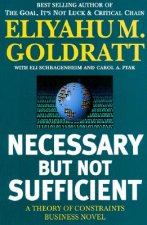
Necessary but Not Sufficient
17.62 € -15 % -

Freakonomics
6.70 € -23 % -

Economics Book
21.22 € -10 % -

Leading at a Higher Level
33.54 € -21 % -

Principles of Economics
15.92 € -10 % -

Macroeconomics For Dummies
26.23 € -6 % -

45 Second Presentation That Will Change Your Life
10.21 € -14 % -

Economics of the Public Sector
69.40 € -8 % -

Factfulness
11.01 € -18 % -

Currency Wars
16.52 € -13 % -

Think Like a Freak
7.90 € -20 % -

Breakthrough Copywriter
17.82 € -

Economics 101
14.11 € -23 % -

Great Economists
11.41 € -19 %
Osobný odber Bratislava a 2642 dalších
Copyright ©2008-24 najlacnejsie-knihy.sk Všetky práva vyhradenéSúkromieCookies



 21 miliónov titulov
21 miliónov titulov Vrátenie do mesiaca
Vrátenie do mesiaca 02/210 210 99 (8-15.30h)
02/210 210 99 (8-15.30h)